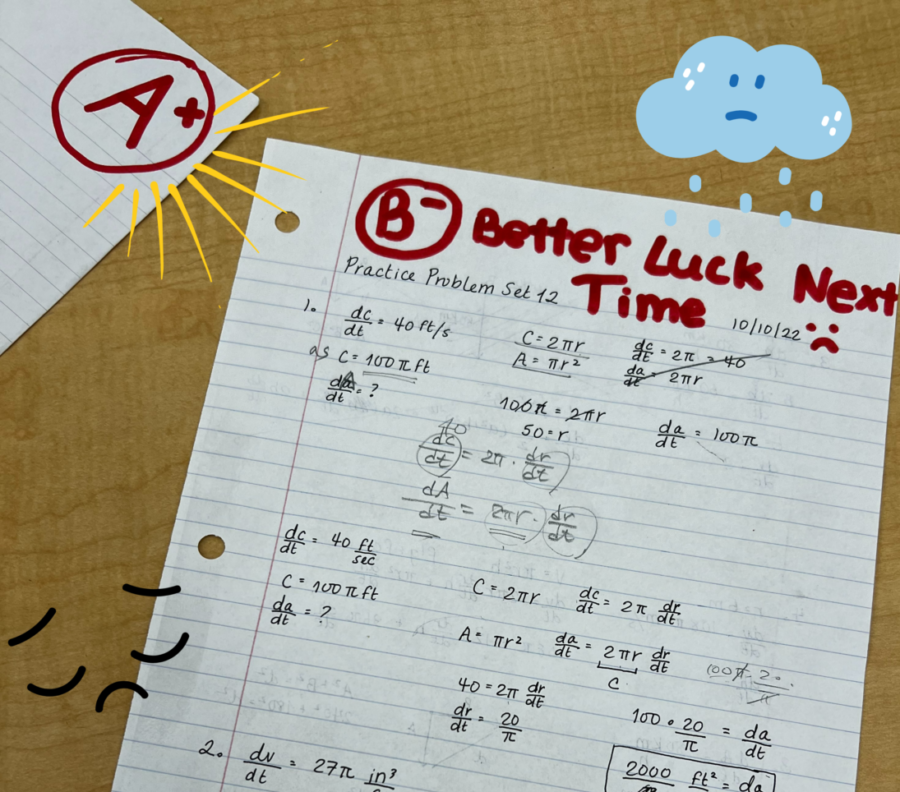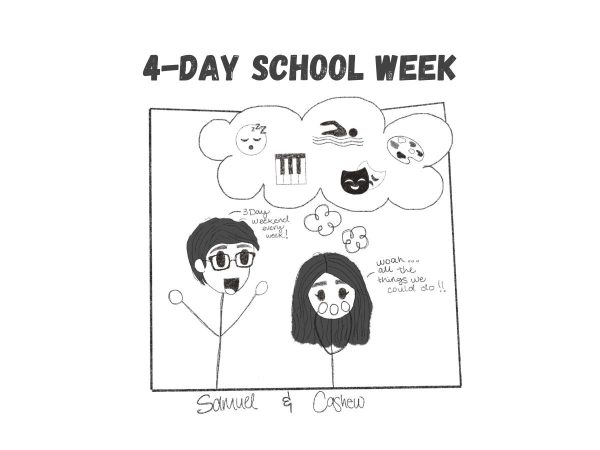Academic Competition: How Much is Too Much?
Competition. It is a word that inspires many different reactions, yet no one denies its presence here at BIM. For many, the word elicits stress, fear, and all kinds of negativity. Others have figured out how to use it as a stepping stone for success. Academic competition between peers to a certain extent can be healthy and allow for growth.
This is not the case for everyone though. People benefit from different learning environments, and one filled with constant comparison may benefit some and not others. However, there are ways to navigate this while still maintaining the motivation competition brings.
Competition can be seen in many aspects of academics at BIM, such as grades, studying, and natural intelligence. Our school has had a long history of grade sharing, the sharing of test scores among students, one of the main sources of competition. Usually, it’s not an issue, but it becomes a problem when people take their lower grade to heart and perceive it as a reflection of something they lack intellectually.
“A student’s… worth doesn’t correspond with a point value,” Dr. Pittman stated in an interview. This point of view is the symptom of a fixed mindset, or the belief that intelligence, talent, and other qualities of the same nature are unable to be changed. With this mindset, a student tends to think that they can’t improve academically, that no matter what they do they’ll never be able to be as smart as someone else. Students here at BIM tend to have fixed mindsets, idolizing natural intelligence. As a ninth grade student, I have fallen victim to this, often feeling intimidated by people who seem to learn things immediately and sometimes wondering if I’ll ever be able to understand, too. However, all it takes is a shift in mindset. A growth mindset is when one believes they can become more intelligent through dedication and hard-work. Adopting a growth mindset ensures that you will not take competition to heart and instead, use it as a way to motivate you to improve. You can’t improve if you don’t try. As Dr. Pittman put it,“a one hundred or a one hundred and two on a test might not always be indicative of learning but strong study skills or cramming.” Grades don’t always measure how much you learned, let alone your overall intelligence, and with a growth mindset, they can be easily improved.
“I have seen a few people be condescending to others. I’ve seen students say that if you do really badly on a test, that means you put in less effort than other people. Most of the time, that’s not the case,” an anonymous student told me. This side of competition is toxic and harmful. Dr. Pittman mentioned in her interview that collaboration is healthier than competition. Mr. Wright stated something similar. “If one student says, ‘I got a 96 and you only got a 92’ that’s not great. But if one student says, ‘I got an 82, I’m confused on this problem,’ it’s a very different conversation.”
The next time you go to ask someone what grade they’ve received, ask yourself why you are doing so. Why do you want to know what grade they’ve received? Knowing someone else’s grade can definitely be a source of motivation, but it can be hard to constantly see it that way. If everyone helps everyone out, everyone succeeds. Exercise self-control and humility. Don’t boast your grades. Alternatively, don’t be discouraged by low test scores. Negative competition might not disappear entirely, but you don’t have to be part of the problem.

Grace is a sophomore in her 8th year at BASIS Independent McLean. A returning member of the BIM Bulletin staff and one of the editors-in-chief, she covers...











